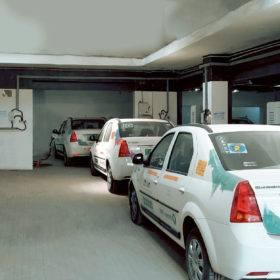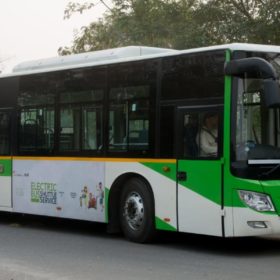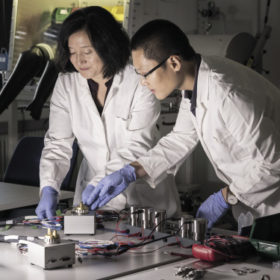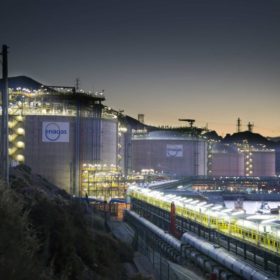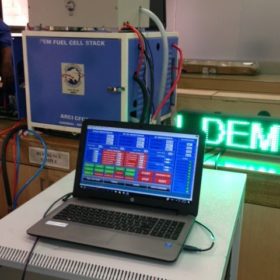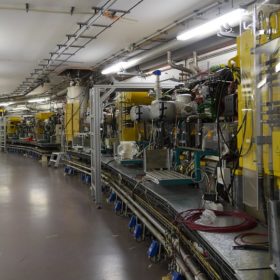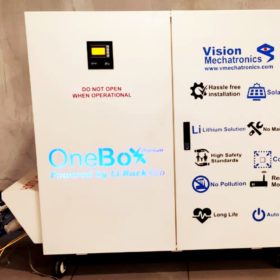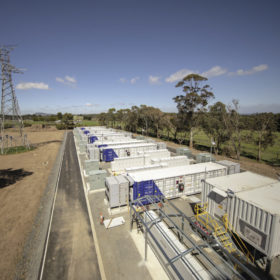Fourth Partner Energy, Lithium Urban form JV to set up solar-powered EV charging infrastructure
Under joint venture ‘Shuchi Anant Virya,’ Fourth Partner Energy has commissioned solar powered charging facilities in Gurugram and Pune which will enable commercial electric vehicle (EV) fleet operator Lithium Urban Technologies to charge around 30 and 40 EVs, respectively, at the same time.
BHEL wins electric bus order for Uttar Pradesh
The entire cost of charging infrastructure for these electric buses—including cost of charging equipment and installation—shall also be borne by Bharat Heavy Electricals Limited.
The long read: Stored potential
Demand for batteries is going nowhere but up, as new factories seem to appear almost every week with promises to power electric vehicles, consumer electronics, and grid-connected storage. But the lithium-ion technology that all of these rely on is not without drawbacks, and a whole host of new storage solutions is eager to get out of the laboratory.
Is green hydrogen necessary to balance a renewables grid?
A report by Norwegian energy consultant DNV GL has considered the opportunity for long-term energy storage to play a role in balancing annual supply and demand fluctuations in a renewables-led grid. Using 58 years of Dutch weather and energy consumption data, the study found long-term solutions such as green hydrogen could make a valuable contribution – but perhaps not as much as some analysts believe.
ARCI develops fuel cell technology to power disaster management systems
Fuel cell systems provide sustainable electricity using hydrogen gas without the need of grid power as required by conventional battery backup systems, making them highly useful for applications like Emergency Operation Centres which need to respond immediately during an emergency situation with state-of-the-art communication systems.
Tata Power to set up EV infrastructure for Jaguar Land Rover
Tata Power will install a range of AC and DC chargers, starting from 7 kW to 50 kW capacity, for Jaguar Land Rover’s electric vehicles to be launched in India.
Speeding up energy storage with pseudocapacitors
Scientists at Germany’s Helmholtz Zentrum Berlin have made a discovery they say could greatly increase the energy storage capacity of titanium-based ‘MXene’ pseudocapacitors, ultimately leading to faster-charging batteries. The group found adding urea molecules between MXene layers increased the material’s storage capacity by up to 56%.
Trade shows postponed over coronavirus fears
As the contagion continues to spread, its impact is beginning to be felt on the solar industry outside China with the cancellation or postponement of major trade shows and conferences that were set to take place over the next few weeks.
A plug-and-play solar-powered battery back-up solution for the home
The OneBox, from Indian manufacturer Vision Mechatronics, consists of a lithium battery, hybrid inverter and solar charge controller to give a hassle-free solution for electricity back-up during power outages. Solar rooftop owners are offered a grid feed feature to maximize net metering income from any excess power generated.
Global energy storage market to surge to 15 GW by 2024
As the sector continues to grow rapidly, delays in manufacturing scale-ups, difficulties sourcing raw materials and a separate path taken by the electric vehicle sector could all chuck ‘sand in the gears’, according to analyst Wood Mackenzie.
